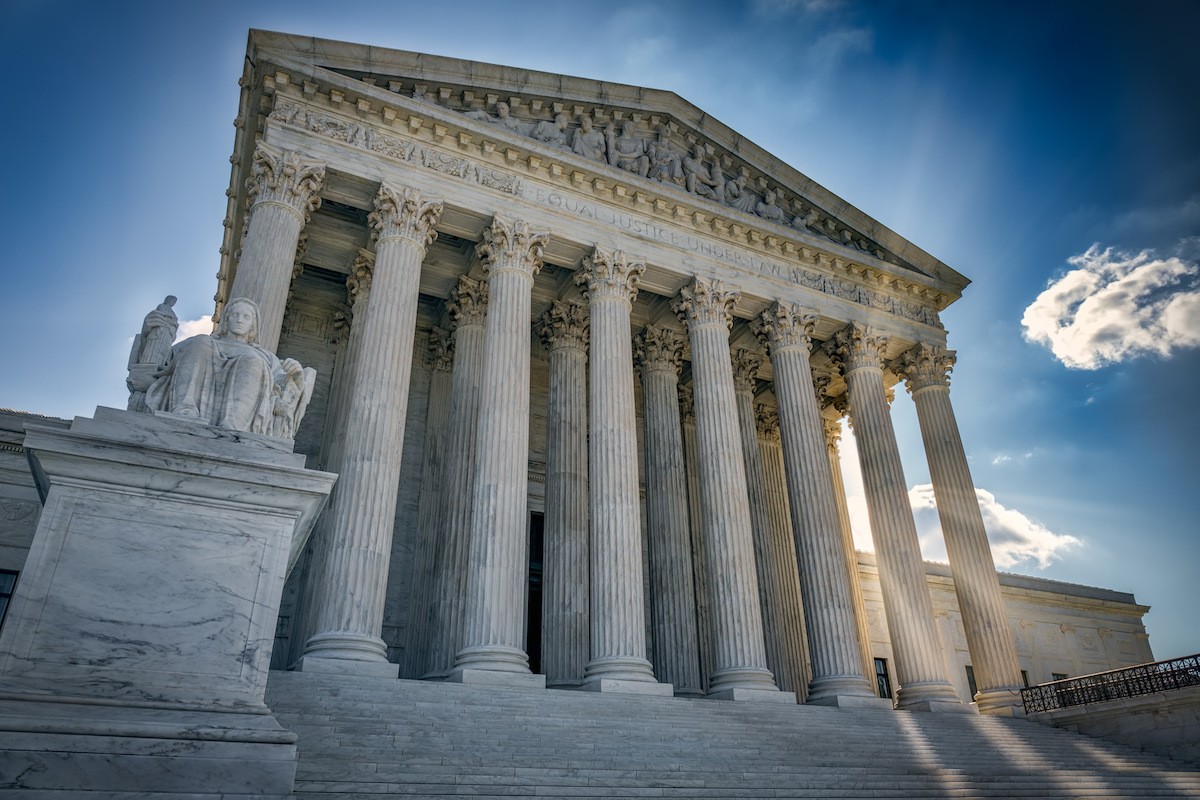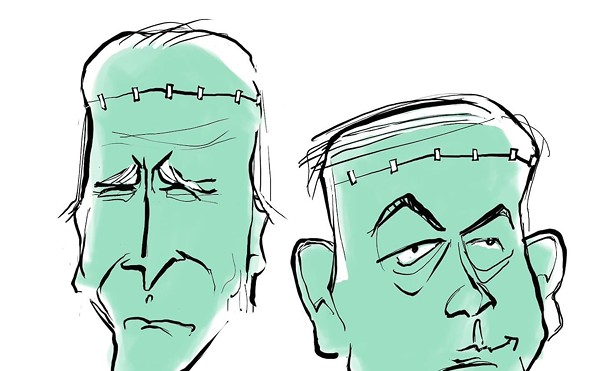This is the question many of us are asking after we read what appears to be a frothmouthed Justice Samuel Alito’s draft opinion overturning Roe v. Wade in a case styled Dobbs v. Jackson Women’s Health Organization.
The reproductive rights movement has been diligently planning for this, and those folks are organizers par excellence. They will raise all the money, drive all the miles, smuggle all the pills and do whatever needs to be done. I can’t answer the “what now?” question when it comes to what reproductive justice orgs are going to do, and if I could, I wouldn’t do it here.
I can, however, explore a little bit of “what now?” when it comes to the federal courts. For more than 50 years, the Supreme Court has been a party to the neoliberal détente, struck between a developing corporatocracy and the working classes in the 20th century. From the perspective of the ruling class, the terms of that détente are, in essence:
We’ll give you your individual liberties, so long as you let us make gobs of money however we damn well please; and we won’t drop you out of helicopters and/or you won’t guillotine us.
Under this tacit agreement, we can wear jackets that say “fuck,” but unions are brought to heel; we can marry people of a different race or the same sex, but winning a lawsuit against your employer is going to be practically impossible; we can consume all the crush porn we want, but corporations are people and cash is their free speech, and so on. Not a great way to do society, but I suppose it could be worse.
This configuration of the Supreme Court is unflinchingly willing to blow up that bargain. This is laid bare by the Dobbs opinion, but the Court has been sending a not-so-subtle message to red-state legislatures for a while now. The message is: Do your worst. We won’t stop you.
In the long run, maybe this is good, because it prods us to stop seeing American institutions as sacred and holy, and start seeing them as the blasphemous things they are. The courts have long been terrible on all sorts of run-of-the-mill Civil Rights issues, but you wouldn’t know that unless you had a closeup look at them, and anyway there are these big SCOTUS wins, so they can’t be all bad. Now we can observe the reality, which is: Yes, they are all bad.
In the short run, of course, the Court’s collective urination on the neoliberal pact will be devastating. There’s the obvious issue of: What if they come for our other rights? That’s a scary thought, sure. But a far more terrifying experiment is to ask: If they decide to roll back all the progress of the 20th century to make way for the ill-conceived, warlord-run, Old Testament Libertopia that the far right wants, what options do we have to prevent it?
This is where my imagination comes up short. I’m an American lawyer, trained in an American law school. I, like all lawyers, am necessarily an “establishment” type. The primary way I know of to go about making things better is by using the institutional lemons that some old slaveowners put in place centuries ago, and hoping for something potable to dribble out.
This romantic view of the role of change-making lawyers is no longer tenable, I’m afraid. We are entering an era in which we must accept that the courts are barriers to — not conduits for — justice, liberation, peace, wellness and all the other stuff we might want as humans with finite life spans. And so long as those barriers persist, the reforms we so desperately need in this country will be impossible.
Think of the best case scenario for the Roe problem: Congress is reluctantly roused from its state of suspended animation and decides to pass legislation codifying the federal right to an abortion. Within a month, SCOTUS strikes down the law. Now what?
Or suppose President Biden decides to “pack the court” with new justices who reverse Dobbs, thus reversing the reversal of Roe. Even assuming that this could happen (which is a sparkly-eyed, cotton-candy fantasy), there is no way that red states would accept the legitimacy of any decision by a 13-plus member Court. They’ll go right on prosecuting women and doctors, creating a situation that is impossibly weird at best, heinously violent at worst.
You can apply this logic to just about any scenario you can come up with. Say the backlash from Dobbs leads to the election of “radical” Democrats nationwide, and Congress decides to pass Medicare for All (again, a gratingly naive daydream). A wave of the Supreme Court’s wand and ZAP — unconstitutional. Free college? Paid parental leave? A Green New Deal? Not in my lifetime.
So the answer to “What happens now?” is not one that I see any pleasant answers to. We are going to be in a protracted battle to determine how far backward in time we go, how much ground we give, how many of our hard-fought liberties we are willing to sacrifice. Moving forward won’t be possible within our existing framework. And the demolition of that framework, even if sorely needed, will come at a frightfully high cost.
Dan Canon is a civil rights lawyer and law professor. His book “Pleading Out: How Plea Bargaining Creates a Permanent Criminal Class” is available wherever you get your books.






